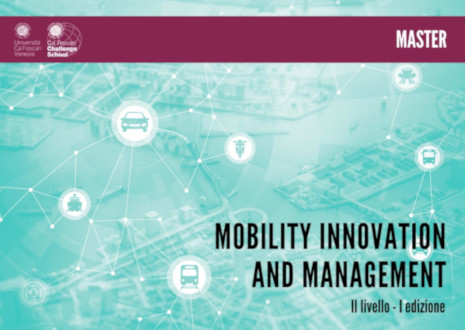MIMA, The master to train the automotive mangers of tomorrow, is about to start

The II level University Master's Degree in Mobility Innovation and Management (MIMA), result of the partnership between Volkswagen Group Italia and the University of Venice, was presented today at the headquarter of Ca’ Foscari University of Venice.
The Master in MIMA is a highly specialized course of study, designed and developed by the Center for Automotive and Mobility Innovation (CAMI) - a research institute of excellence operating within the Department of Management of Ca’ Foscari University of Venice.
Volkswagen Group Italia is the main sponsor of the initiative. A strongly desired partnership, as confirmed by CEO Massimo Nordio: “The transformation of our Group is not limited to the production of electric models, to autonomous driving and to the development of digital services. It is a 360-degree transformation, which is reflected in all our daily activities. Investing in training is one of the pillars of our strategy, and for us it is important to be partner of Ca’ Foscari University of Venice for this project, first of its kind. The concept of mobility is evolving rapidly and it is clear that, to manage the business, the managerial approach typical of the "traditional" automotive sector will no longer be sufficient: a much broader vision, inclination for rapid change and transversal skills will be needed. Already in 2018 we sensed the need to optimize our organization, creating the role of Future Mobility Manager and paving the way to innovation also in terms of human resources, and we will continue to work in this direction".
The Master, provided by Ca’ Foscari Challenge School, lasts one year, it will welcome 20 students and includes 300 hours of full-time teaching in the period between March and May 2020, to which 250 hours of internship must be added - intended as an additional training opportunity that will make the access to the labour market easier - and the preparation of the final thesis. The internship can be substituted with the drafting of a specific project work, for example for the participants that are already professionally engaged in the sector.
The MIMA will entirely be held in English and it is structured in 6 modules: Mobility, Management, Technology, Tools, Opportunities and Experiences. All the aspects of the business linked to the mobility of tomorrow will be considered, with a coherent and well-defined path that will start from the definition of the principles of sustainable mobility in economic, environmental and social terms. A focus on the management field will follow, with considerations on the organization of innovation for the new ecosystem.
A technological in-depth analysis will follow, analysing the evolution of the drive train and the main trends of the sector: connected vehicles, Internet of Things, autonomous driving, product architectures, micro-mobility and infrastructures. The following module will focus on the new ‘tools of the trade’: from the analysis of consumer behaviour to an overview of the tools available to policy makers, to new opportunities related to urban development. The didactic part will end with the observation of the competitive dynamics of the new ecosystem of mobility and of the related business development strategies.
Volkswagen Group Italia, which took part in the definition of the study plan, will actively participate to the lessons and will offer the participants the opportunity to carry out the internship at the company. In addition, the Technology module will be held at the VGImobilityLab, a facility dedicated to innovation training within the Verona headquarters, where teaching and testing on the proving ground of 18.000 m2 will alternate.
"The mobility ecosystem is going through a complex transition that requires new management tools to enhance the potential development offered by technological innovations of the market," said Professor Francesco Zirpoli, Director of CAMI and coordinator of the Master. “TLC and ICT companies, suppliers, energy and infrastructures, local mobility companies, municipalities are changing the way they relate to the world of mobility. The challenge is not just technological but rather organizational. The Master in Mobility Innovation and Management comes from these needs with the aim of training new professionals who know how to operate as a link and integrate different skills. Thanks to the international network of researchers of CAMI and to our partners, we are confident that this Master will be able to generate value for its students and for the actors of the mobility ecosystem".